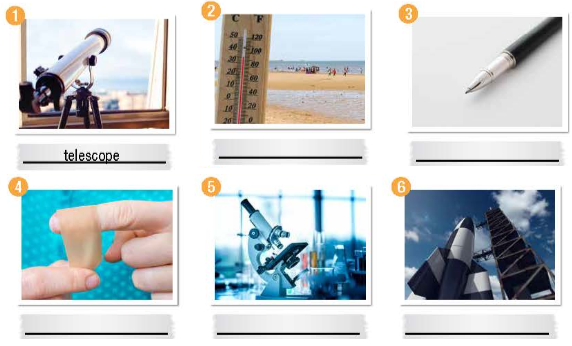Hãy nhập câu hỏi của bạn vào đây, nếu là tài khoản VIP, bạn sẽ được ưu tiên trả lời.

1. bigger cities (những thành phố lớn hơn)
Thông tin: It's changed a lot. There used to be more people, but many people moved away to live in bigger cities in the 1990s.
(Nó đã thay đổi rất nhiều. Đã từng có nhiều người hơn, nhưng nhiều người đã chuyển đến sống ở các thành phố lớn hơn vào những năm 1990.)
2. The factories and coal power plant were closed.
(Nhà máy và trạm năng lượng than đá đóng cửa.)
Thông tin: Because many factories were closed. There was a coal power plant here, too. That closed too and lots of people lost their jobs. It was terrible for workers here.
(Bởi vì nhiều nhà máy đã đóng cửa. Ở đây cũng có một nhà máy điện than. Nó cũng đóng cửa và rất nhiều người mất việc làm. Thật khủng khiếp cho những người công nhân ở đây.)
3. the air (không khí)
Thông tin: Air quality has gotten a lot better since the power plant closed.
(Chất lượng không khí đã tốt hơn rất nhiều kể từ khi nhà máy điện đóng cửa.)
4. younger people (người trẻ tuổi)
Thông tin: There's a lot more to do in the town than when I was young. We only had a movie theater when I was your age. That was rebuilt near the park five years ago. It's much nicer now.
(Có nhiều thứ để làm trong thị trấn hơn so với khi chú còn trẻ. Bọn chú chỉ có một rạp chiếu phim khi chú bằng tuổi cháu. Nó đã được xây dựng lại gần công viên năm năm trước. Bây giờ nó đẹp hơn nhiều.)

a. We use (1) a/an to talk about something for the first time.
(Chúng ta sử dụng “a/an” để nói về thứ gì đó lần đầu tiên.)
There’s a interactive whiteboard in our classroom.
(Có một cái bảng tương tác trong lớp chúng ta.)
b. We use (2) the when we mention something again.
(Chúng ta sử dụng “the” khi nhắc về thứ gì đó lần nữa.)
Our teacher often uses the interactive whiteboard.
(Giáo viên thường dùng bảng tương tác.)
c. We use (3) the when it is clear what we are talking about, or when there is only one of something.
(Chúng ta dùng “the” khi thứ ta đang nói rất rõ ràng hoặc khi thứ đấy chỉ có duy nhất một cái.)
We play basketball in the gym. (The gym at school)
(Chúng tôi chơi bóng rổ trong nhà thi đấu. (Nhà thi đấu ở trường.))
The sun is shining.
(Mặt trời đang chiếu sáng.)
d. We use (4) a/an to say what someone's job is.
(Chúng ta dùng a/an để nói về nghề nghiệp của một người.)
My mum's a teacher.
(Mẹ tôi là giáo viên.)
e. Note these set phrases (Chú ý các cụm từ cố định)
- (5) the: listen to the radio, go to the cinema, play the guitar.
(nghe đài radio, đi rạp chiếu phim, chơi ghi-ta)
- (6) no article: watch TV. listen to music, in/ to bed, to/ at / from school, at home / work, in hospital
(xem TV, nghe nhạc, trên/ lên giường, đến/ tại/ từ trường, tại nhà/ nơi làm việc, trong bệnh viện)

I. Discuss these questions. Campare your answers.
1. Explain why the writer once arrived at the airport only a few minutes before the plane left.
=>Because his secretary had got the ticket for him and he thought she said that the plane left at 10:50.
2. Whose fault do you think it was? Thư writer's or his secretary's? Give reasons for your answer.
=>Thư writer's .Because he didn`t bother to take a good look at the ticket.
3. Explain why the writer think it is essential to have at least a little local currency when you arrive in a foreign country.
=>Because this can be absolutely essential if you are flying to a place few tourists normally visit.
4. Describe some of the problems you could have if you ignore the advice in the last paragraph
=>when it is still fairly cool in London or Manchester, to places like Athens, Rome or Madrid, where it is already beginning to get quite warm during a day.

1. telescope (n): kính thiên văn
2. thermometer (n): nhiệt kế
3. ballpoint pen (n): bút bi
4. Band-Aid (n): băng cá nhân
5. microscope (n): kính hiển vi
6. rocket (n): tên lửa


I’d like to start by saying …
The reason I say that is …
Now let’s move on to (the question of) …
I’ll tell you why I think that.
First, … Second, … Finally, …
To sum up, …